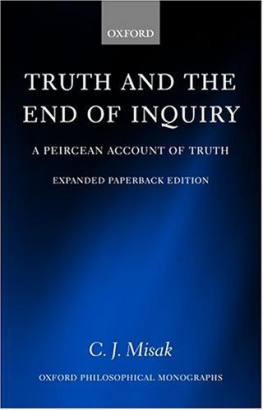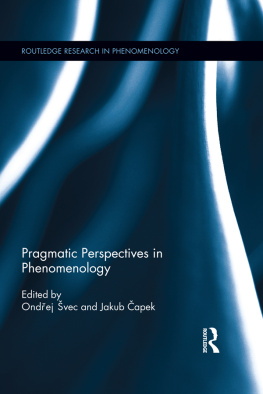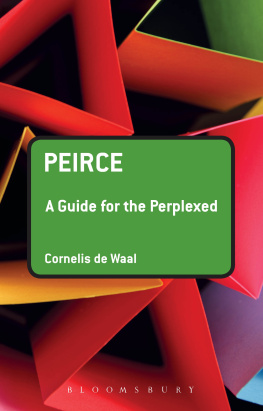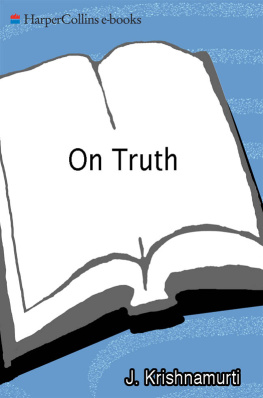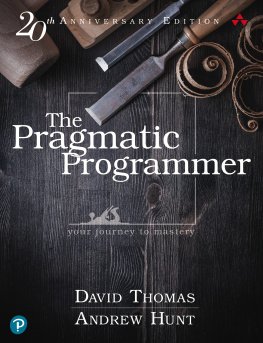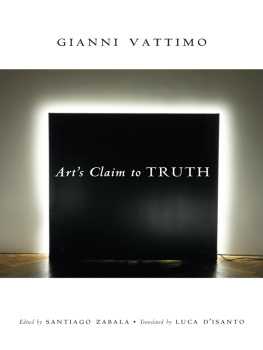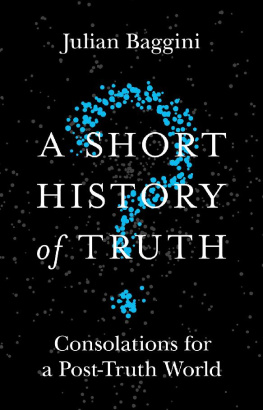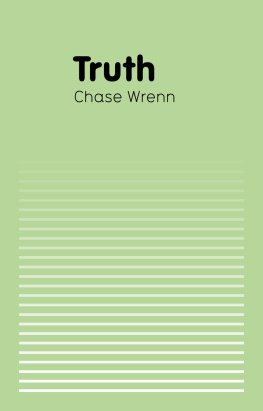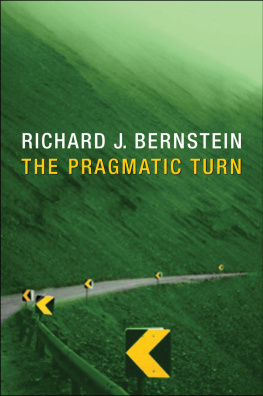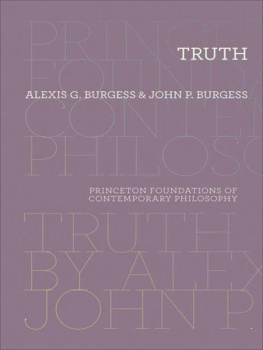Preface
This book is about truth and inquiry. It explains how, following C. S. Peirce, we might think it correct to say that a true hypothesis is one which would be believed at the end of inquiry.
Peirce, however, conceived of himself as an 'architectonic' philosopher and so in order to get a grip on what he thought about truth, one must make serious excursions into his pragmatism, theory of signs, fallibilism, critical commonsensism, logic, categories, and scholastic realism. Matters are further complicated by the fact that Peirce's thought was constantly evolving: not much in his system lies static, isolated, or unconnected. Thus the account of truth that I shall put forward as Peirce's is one that has to be both excavated and reconstructed from the architectonic maze of forty years of diffuse papers. The resulting account, however, is not the product of purely historical scholarship. Although my argument is one firmly based at all points on Peirce's work, it is an argument about what the best account of truth is; it is an argument about what account of truth we should extract from Peirce's work.
The core of my interpretation is the view of truth and inquiry which Peirce first developed in the 1870s. The culmination of this work was published in a series of papers in the Popular Science Monthly, called 'Illustrations of the Logic of Science'. They include the famous papers 'How to Make Our Ideas Clear' and 'The Fixation of Belief'. The central philosophical ideas which I retain from this period were never abandoned by Peirce. There are numerous passages in the 1900s where he refers to and ratifies them. Thus references in my work to the earlier period represent what I take to be constant in Peirce's position--the theses he maintained into the 1900s.
In the late 1880s and early 1900s Peirce amended many of his doctrines. Where these are significant improvements, I take on the amendments. And so it is to this later period that my interpretation best attaches. But in order to keep the
-vii-
enterprise on the rails, I have to suppress certain doctrines of Peirce's--those which I think do not hold up to scrutiny. The two most significant doctrines from which I want to distance myself are his distinction between science and practice and his very late claims about the need to find an ultimate aim for humankind. I shall give notice in the footnotes when these theses are especially relevant, but, for the most part, I simply ignore them because in both cases, Peirce could have reasonably and consistently exercised the option to go in another direction.
Thus the position I attribute to Peirce will not coincide with any rsum or consolidation of it that Peirce himself offered at a particular point in his intellectual career. But it is a position constructed solely out of doctrines that Peirce did indeed hold, whether or not he put them together in just this way himself. To any objection that I end up picking out one strand in Peirce's rambling system and thereby misrepresent the whole, I reply that what I offer represents a stable, coherent, and plausible Peircean position.
Because many of Peirce's doctrines will be discussed in what follows, the reader unfamiliar with Peirce will find here an extensive, if selective, introduction to his thought. My aim is to give just enough background to provide everything required to grasp Peirce's account of truth without imparting so much that the reader is bogged down in scholarship. Much of the scholarly load is borne by the footnotes. Since all of the background material referred to will be more or less explicitly related to Peirce's conception of truth, many relationships (such as that between the categories and the theory of signs) will remain untouched. To draw these out would only distract attention from the issue in question. The overriding aim is not to explicate the entire body of Peircean doctrine, but to develop a sensible Peircean position about truth.
Wherever my interpretation of Peirce is novel, more complete textual evidence is given. For instance, I claim in Chapter 1 that Peirce formulates pragmatism in at least three different ways, none of them providing a coherent doctrine that will meet all of his requirements. I then suggest a way of achieving the result which Peirce, on my view, desires. The
-viii-
reader might wonder why I bother with Peirce's misguided efforts in this way. The answer is that, first, if I am going to improve on what Peirce said, then to be fair, I must look carefully at what he actually did say. And secondly, part of my aim is to draw attention to a structure in Peirce's writings on pragmatism that has thus far gone unnoticed.
Those who are less interested in whether I have got Peirce right and more interested in the pragmatic account of truth per se might want to focus on Chapter 4. For it is there that the broad outline of the pragmatic account of truth is articulated. For those who want the whole picture, the book proceeds as follows. In Chapter 1, I distinguish the pragmatic project from the project of providing a definition or a logical equivalence. Peirce does not want to offer a straightforward biconditional of the sort: H is true if and only if, if inquiry were pursued as far as it could fruitfully go, H would be believed. But it turns out that he is well on the way to getting himself such an equivalence. He argues that it is a consequence of 'H is true' that, if inquiry were to be pursued, H would be believed. So he seems to hold the left-to-right conditional--the conditional which moves from truth to the deliverances of inquiry. And his pragmatic scruples prevent him from holding that there is more to a true hypothesis than what is provided by the right-to-left conditional:

